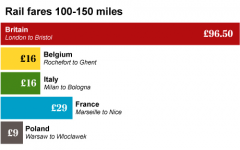KenM
Well-known member
It seems to me....that there's a lot of kudos, either rightly, or wrongly ascribed to, and perceived by big listers. Understood, and as a pastime it's a fairly innocuous pursuit, that tends to favour those with the time (older birders generally), and the wallets to indulge in chartering ''transport'' to those far flung outposts within the realm. However, I suspect that most birders don't have the time and money, or even the inclination (especially the old buggers  , to indulge in the ''drop of a vagrant'' birding, that seems to be all the rage nowadays.
, to indulge in the ''drop of a vagrant'' birding, that seems to be all the rage nowadays.
This got me thinking, that most of us who can't afford, or want to ''play'' in the ''Premier League'', might prefer to move the goalposts to a more ''level'' playing field...the ''Champions League''. Where the focus might be on the % of finds...of one's own UK life list, rather than the bottom line figure that seems to motivate a large minority of players. This way everybody could play...including the (globe trotting Scilly Shetlanders e.g. ) I wonder what the ''mean average'' might be for the game?
) I wonder what the ''mean average'' might be for the game?
Cheers
This got me thinking, that most of us who can't afford, or want to ''play'' in the ''Premier League'', might prefer to move the goalposts to a more ''level'' playing field...the ''Champions League''. Where the focus might be on the % of finds...of one's own UK life list, rather than the bottom line figure that seems to motivate a large minority of players. This way everybody could play...including the (globe trotting Scilly Shetlanders e.g.
Cheers








